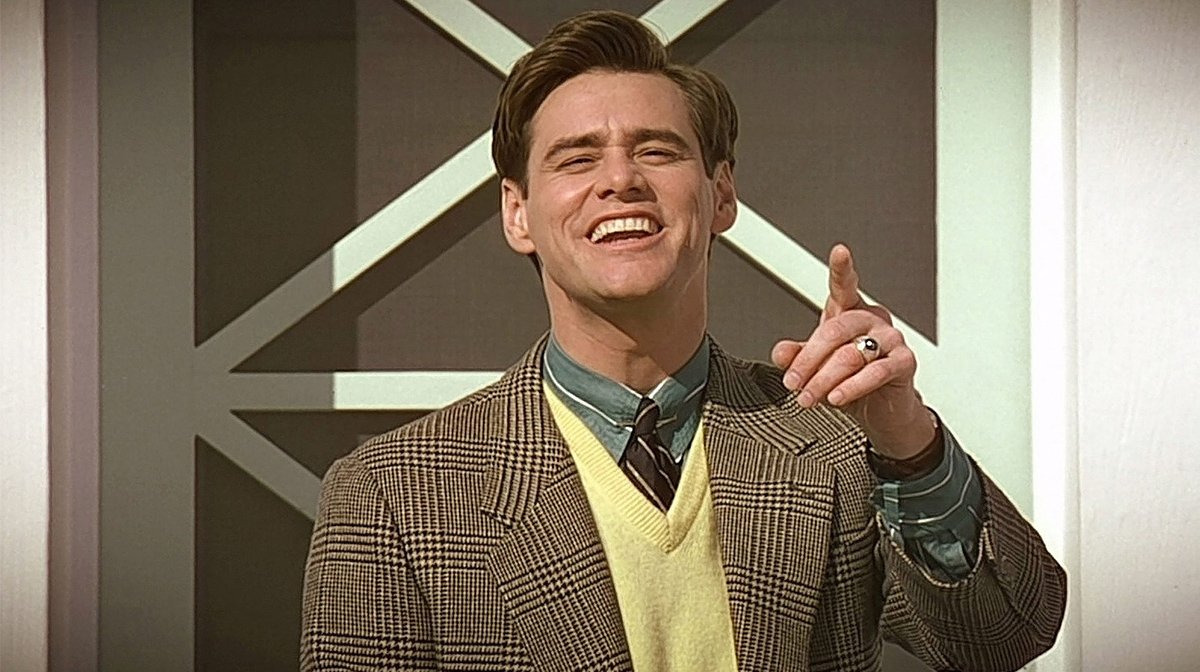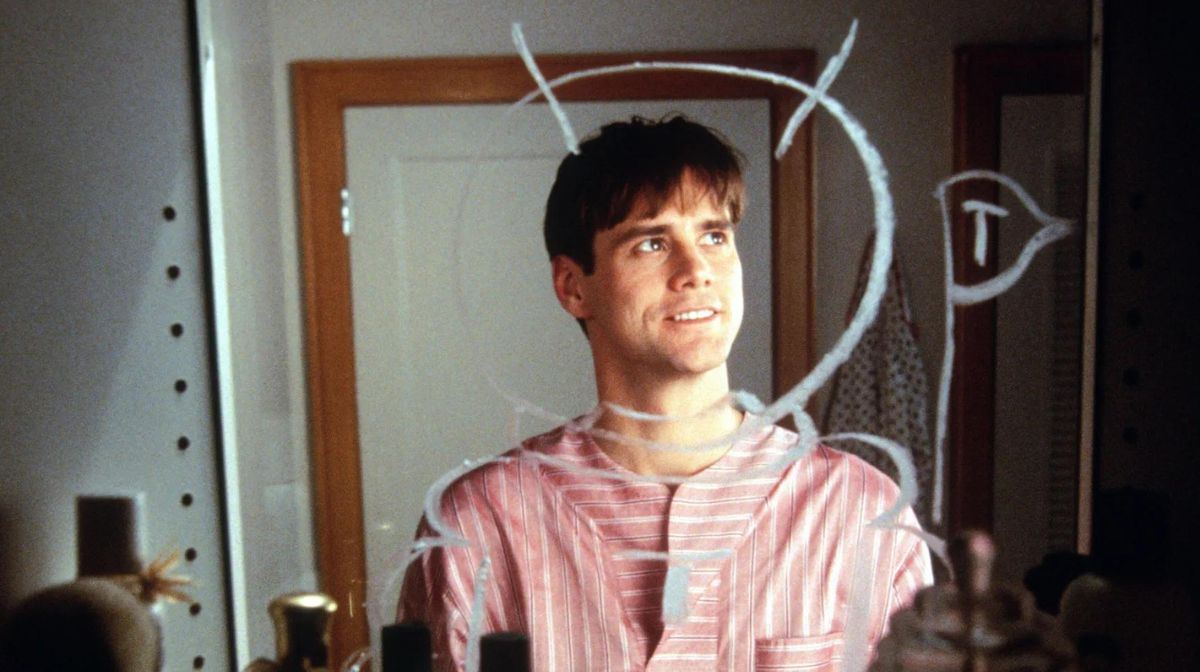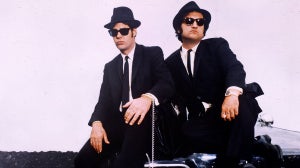
The Truman Show was a major evolution for the comedy star, earning him plaudits for his dramatic skills for the first time. But it almost wasn't to be, as the finished product was a bold reimagining of a dystopian sci-fi script, which had far more in common with horror than this film's gentle satirical examination of reality TV and our relationship to it.
Originally titled The Malcolm Show, Andrew Niccol's original draft of the screenplay took place on a soundstage designed to look like New York, which its protagonist has been trapped in all of his life. Unlike Truman, Malcolm had a less-than-sunny disposition; he was an alcoholic in an unambiguously loveless marriage, who would frequently leap to extremes in order to escape - at one point, even threatening the mother of a newborn baby that he would kill her child if she didn't tell him the truth.

A lot of the narrative beats were the same, but they were considerably grimier. For example, Malcolm was also preoccupied with finding his long-lost love, only he resorted to repeatedly hiring a sex worker to reenact their previous encounters.
The biggest change, however, was that it wasn't revealed to the audience that Malcolm was trapped in a TV show until a third-act twist. Prior to this, you just saw Cristof (the show creator played by Ed Harris in the movie) suspiciously skulking in the background wearing a headset.
It was a considerably less PG-friendly affair, and naturally, it attracted directors known for grittier work. Brian de Palma, fresh off Mission: Impossible, almost signed on to direct, while other contenders approached included Tim Burton, Sam Raimi, Terry Gilliam and David Cronenberg.

When Australian director Peter Weir, then best known for Witness and Dead Poets Society, signed on, his first big change was to demand Niccol rewrite the movie to completely transform the tone. If this was a beloved reality show, he argued, then wouldn't it be something audiences actually wanted to tune into, that gave them a feel-good factor?
His intervention worked, with Malcolm becoming Truman, and the film on its way to being a success both at the box office and critically. However, Weir's ambitious ideas for the movie didn't end there, as he had several meta ideas up his sleeve which didn't come to fruition.

Firstly, he initially wanted to play the role of Cristof, to reflect the fact he was the director pulling the strings on the production. But even more ambitiously, he at one point wanted to have cameras in every cinema worldwide, so at one point the projector would stop and audiences would see themselves onscreen watching Truman.
Naturally, that gambit proved far too complicated to put into action. However, Weir's success at transforming a downbeat script into a surprisingly feel-good success didn't go unrewarded, as he picked up a Best Director nomination at the Oscars the following year.
For all things pop culture, follow us on Facebook, Instagram, Twitter and TikTok









